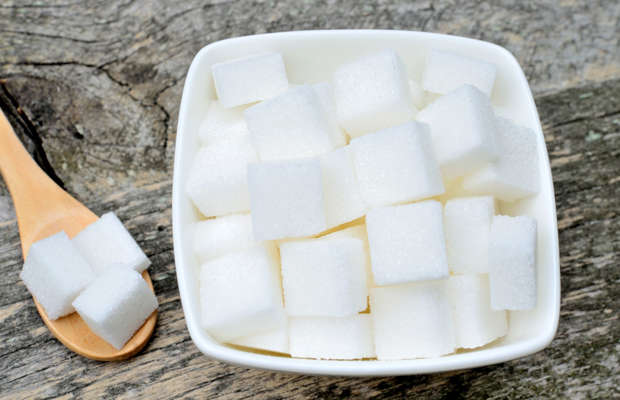
1. Easier Weight Loss
Let's repeat: Fat does not make you fat. No, not even dairy fat. For instance, a 2013 review published in the European Journal of Nutrition found that people who eat full-fat dairy tend to be leaner than those who opt for low-fat versions. And in a 2016-released long-term study of 18,438 middle-aged women, consumption of high-fat dairy, but not low-fat dairy, was associated with reduced likelihood of becoming overweight through the years.
That may be because fat is an incredibly satiating nutrient, filling you up, slowing down the release of sugars into your bloodstream and helping to prevent overeating, explains Brian Quebbemann, a bariatric surgeon with the Chapman Medical Center in California and president of The N.E.W. Program. "By eating the full-fat form of dairy products, you might actually eat fewer calories throughout the day than you would otherwise," he says.
 15 Best Weight-Loss Diets at a Glance
15 Best Weight-Loss Diets at a Glance

2. A Lower Risk of Diabetes
 © AndreyPopov/iStock/Getty Images
While maintaining a healthy weight can certainly help lower your risk of developing Type 2 diabetes, research suggest that, all scales being equal, dairy fat may still improve metabolic health. After all, one 15-year study from Tufts University researchers found that, compared to people who eat the least dietary fat, people who eat the most have a 46 percent lower risk of developing Type 2 diabetes.
One reason: "When someone eats full-fat dairy versus low-fat dairy, the fat will actually delay the absorption of the milk's sugar," says NYC registered dietitian and certified diabetes educator Laura Cipullo, author of "Women's Health Body Clock Diet." As a result, blood sugar rises more slowly over a longer period of time. Consequently, insulin follows this same pattern. Less circulating insulin means less risk for the development of insulin resistance and diabetes." Meanwhile, the study suggests that specific fatty acids contained in dairy, such as pentadecanoic acid and heptadecanoic acid, may play special roles in risk reduction.
© AndreyPopov/iStock/Getty Images
While maintaining a healthy weight can certainly help lower your risk of developing Type 2 diabetes, research suggest that, all scales being equal, dairy fat may still improve metabolic health. After all, one 15-year study from Tufts University researchers found that, compared to people who eat the least dietary fat, people who eat the most have a 46 percent lower risk of developing Type 2 diabetes.
One reason: "When someone eats full-fat dairy versus low-fat dairy, the fat will actually delay the absorption of the milk's sugar," says NYC registered dietitian and certified diabetes educator Laura Cipullo, author of "Women's Health Body Clock Diet." As a result, blood sugar rises more slowly over a longer period of time. Consequently, insulin follows this same pattern. Less circulating insulin means less risk for the development of insulin resistance and diabetes." Meanwhile, the study suggests that specific fatty acids contained in dairy, such as pentadecanoic acid and heptadecanoic acid, may play special roles in risk reduction.

3. A Happier Heart
 © Photobuay/iStock/Getty Images
Yes, cheese can be part of a heart-healthy diet! Research published this year in The American Journal of Clinical Nutrition found that consumption of full-fat cheese raises healthy HDL cholesterol levels, which are associated with a decreased risk of heart disease, better than does consumption of low-fat varieties.
The study builds on a 2014 review published in Current Nutrition Reports, which concluded that fat from milk, cheese and yogurt does not contribute to the development of coronary artery disease. While researchers are still trying to tease out why, Cipullo notes that dairy contains more than 400 unique types of fatty acids, some of which are believed to have anti-inflammatory effects in the body.
© Photobuay/iStock/Getty Images
Yes, cheese can be part of a heart-healthy diet! Research published this year in The American Journal of Clinical Nutrition found that consumption of full-fat cheese raises healthy HDL cholesterol levels, which are associated with a decreased risk of heart disease, better than does consumption of low-fat varieties.
The study builds on a 2014 review published in Current Nutrition Reports, which concluded that fat from milk, cheese and yogurt does not contribute to the development of coronary artery disease. While researchers are still trying to tease out why, Cipullo notes that dairy contains more than 400 unique types of fatty acids, some of which are believed to have anti-inflammatory effects in the body.

4. A Calmer Digestive Tract
 © lutavia/iStock/Getty Images
Whole milk and yogurt could also reduce belly bloat. "Full-fat dairy is lower in lactose, making it easier for individuals with lactose intolerance to digest compared to low-fat or no-fat dairy," Cipullo explains.
Meanwhile, one specific fatty acid contained in dairy, called butyric acid, is known to aid in gastrointestinal health and, according to a 2013 review from Polish researchers, may actually hold promise in the treatment of irritable bowel syndrome by supplying the bowels with cellular energy and promoting healthy gut bacteria.
© lutavia/iStock/Getty Images
Whole milk and yogurt could also reduce belly bloat. "Full-fat dairy is lower in lactose, making it easier for individuals with lactose intolerance to digest compared to low-fat or no-fat dairy," Cipullo explains.
Meanwhile, one specific fatty acid contained in dairy, called butyric acid, is known to aid in gastrointestinal health and, according to a 2013 review from Polish researchers, may actually hold promise in the treatment of irritable bowel syndrome by supplying the bowels with cellular energy and promoting healthy gut bacteria.

5. Lower Sugar Intake
 © deeaf/iStock/Getty Images
When people reduce the amount of fat they eat, they tend to increase their intake of refined carbohydrates and sugar, the driving forces behind the bulk of our nation's chronic health problems, says Dr. Kevin Campbell, a board-certified internal medicine and cardiac specialist based in North Carolina. In fact, newly discovered documents published in JAMA Internal Medicine show that decades ago, the sugar industry paid scientists to downplay the effects of sugar and put the blame on saturated fat (like that in dairy).
Currently, 3 out of every 4 Americans eat too much added sugar, with 90 percent of it coming from ultra-processed foods – like that ice cream in your freezer. And, while we aren't promoting ice cream as a health food (everything in moderation!), it's worth noting that full-fat tubs tend to contain less sugar than do their low-fat counterparts. Why? When food manufacturers remove fat from foods (like dairy fat from ice cream), they add in extra sugar to keep you hooked, Cipullo says. Again, full-fat dairy for the win.
Copyright 2016 U.S. News & World Report
© deeaf/iStock/Getty Images
When people reduce the amount of fat they eat, they tend to increase their intake of refined carbohydrates and sugar, the driving forces behind the bulk of our nation's chronic health problems, says Dr. Kevin Campbell, a board-certified internal medicine and cardiac specialist based in North Carolina. In fact, newly discovered documents published in JAMA Internal Medicine show that decades ago, the sugar industry paid scientists to downplay the effects of sugar and put the blame on saturated fat (like that in dairy).
Currently, 3 out of every 4 Americans eat too much added sugar, with 90 percent of it coming from ultra-processed foods – like that ice cream in your freezer. And, while we aren't promoting ice cream as a health food (everything in moderation!), it's worth noting that full-fat tubs tend to contain less sugar than do their low-fat counterparts. Why? When food manufacturers remove fat from foods (like dairy fat from ice cream), they add in extra sugar to keep you hooked, Cipullo says. Again, full-fat dairy for the win.
Copyright 2016 U.S. News & World Report

source : U.S. News & World Report - Health (http://www.usnews.com/)
Related keywords : 5 reasons to start eating full-fat dairy according to science

1 Comments
Thanks for your valuable information
ReplyDeleteLadies and Gentlemen !Also try this for Fat Burner
Keto Max Shred
Ketodiet
ketodiet menu
ketodiet food
keto snacks
Ketodiet for beginners
Ketosis
ketobhb
pruvit ketones
Ketogenicdietmenu
The keto diet
ketodiet food
keto diet food list
keto fruit